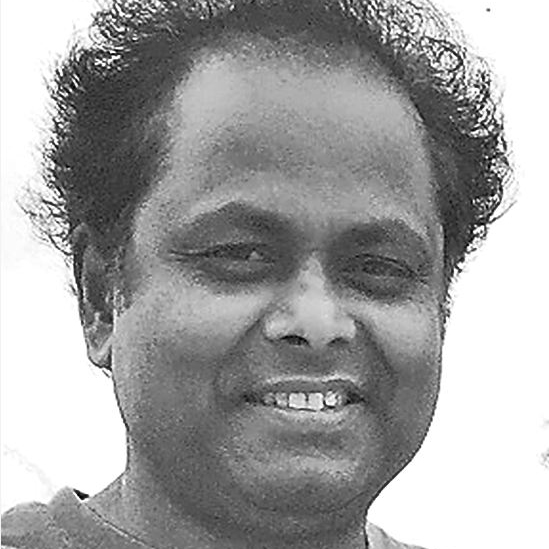Opinion
Paradoxical Madhes
Common Madhesis may demand political rights but fall short in providing social rights to their own
Pramod Mishra
Mohammad Lalbabu Raut has just become the chief minister of Province 2, the truncated Madhes Pradesh (a province with Madhesi majority). Raut is Muslim, and his party made him the chief minister of a province where Nepal’s most conservative Hindus, the Madhesis (the plains dwellers) live. This political development is nothing short of a miracle at a time when India has gone the opposite way. Raut becoming chief minister is as inspiring as the depressing story of Satya Narayan Yadav, who was left with no choice but to become Mohammad Alauddin in order to marry his beloved Rasulia Khatun, a young woman he fell in love with some forty years ago in his Siraha village, consequently losing his parents’ family, caste, and, most shocking of all, the paternal inheritance that by law ought to have been his. But because of the prejudices of the Hindu officials in a Hindu state, his father and his family managed to deprive Alauddin.
The right decision
At first, Satya Narayan’s father and family tried to dissuade him from marrying Rasulia. He refused. He gave up his studies across the border in India, afraid he might lose Rasulia to their machinations. His father told him that if he couldn’t give up Rasulia, he should keep her as a mistress but marry only in his own Yadav caste. Satya once again refused because he would never degrade his love to the status of a mistress. They then threatened him: if Satya, in his raw youth, stuck to Rasulia, out of caste and creed, he would lose his caste, family, and inheritance. So, what would he choose—family, caste, inheritance or the poor Muslim girl? Satya Narayan chose the girl. He went to the mosque, offered his prayers and took a new name—Alauddin—and moved in with Rasulia in her parents’ section of the village. His days of misery began. No longer was his father’s hundreds of acres his. He has since eked out his living by doing manual labor and his sons, too, remained uneducated and poor.
Ever since I read the story in a Nepali newspaper of Satya Narayan Yadav’s lifelong sacrifice and suffering as a result of marrying a poor but attractive Muslim girl, whose parents worked Yadav’s ancestral land for the past two generations, this story has refused to leave my mind because of its profound humanity on the one hand, and idiocy of village life in India and Nepal on the other. But it is also a story loaded with social meaning, symbolic of the profound convulsions the Hindu society has gone over many centuries, scarring the Hindu psyche, turning it inwards and toward bigotry and orthodoxy.
In a moment of Hindu extremists’ crusade against Muslims in India in the name of “love Jihad,” where these Hindus see a grand conspiracy of the evangelical Muslim collective out and about to wage a struggle to spread Islam by marrying Hindu girls and converting them to Islam, Satya’s story is “love abhishap,” love curse hurled by the Hindus themselves, by, in fact, Satya’s own family due to their unyielding bigotry. No Muslim chased a Hindu man here to convert through marriage but a Hindu land holding family disowned its beloved youngest son for good for marrying out of caste and creed.
Satya Narayan’s story tells a number of things about the Madhesis. It tells us that it’s not just the so-called upper castes of Madhes—such as the foursome of Brahmin, Rajput, Bhumihar and Kayastha—who can be ultraconservative in matters of caste and creed but the so-called socially backward OBCs (Indian designation of Other Backward Castes/Class) could equally be inhuman in matters of caste. Satya’s story is a prime example of that.
Has society changed?
But Satya’s story also leads us to Lalbabu Raut’s chief ministership. Have Madhesis changed in the past forty years—to have excommunicated Satya then and to embrace Mohammad Lalbabu now? Not at all. To be sure, in the young generation of educated Madhesis, the prejudices of caste, creed and communality may have softened but not to the extent of letting one’s son marry a Muslim bride and welcome the bride home. Village idiocy may very well still reign there. But, then, how can we understand Mohammad Lalbabu phenomenon?
Lalbabu Raut’s rise to chief ministership in Province 2 reveals the avant-garde role of progressive political parties, in this case the Sanghiya Samajwadi Forum-Nepal, a party of the future that has ambitions to bring the marginalised of diverse groups under one umbrella. It also shows the profound social transformation such political parties can bring about in the backward social formations of traditional village communities mired in prejudices, poverty and social backwardness. These parties run by the Talented Tenth, a phrase of W.E.B. Du Bois’s (whose birth anniversary was this past Saturday), can usher in profound changes and lead the benighted masses to enlightenment and acceptance of difference—not just the much hyped development. Just think of the Indian masses and their social backwardness—and their progressive, enlightened leadership by Gandhi and Nehru. Could their progressive ideas about caste, religion, gender have been possible among the masses themselves?
Satya Narayan Yadav’s suffering as Alauddin for the past forty years and Mohammad Lalbabu Pandit’s rise to chief ministership are two sides of the same coin of the Madhesi ferment. The sleepwalking Madhes seems to have woken up a little, not necessarily by itself but by the help of its progressive leaders. Common Madhesis may demand their political rights but when it comes to allowing social rights to their own family members, Madhesis may balk and retreat into their cocoon of arranged marriage and ultra-conservatism. But their progressive leaders promise a new future for Madhes. And on their way, who knows, they may also do some good to the whole of Nepal itself. Wish them well.
Mishra is department Chair of English Studies at Lewis University in the United States




 10.55°C Kathmandu
10.55°C Kathmandu










